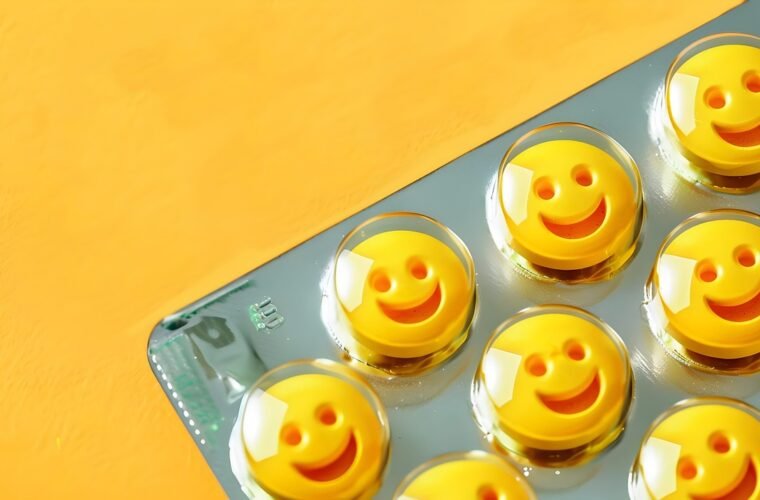doAfter years of work as both a medical journalist and psychotherapist, I’m convinced that medications can play a valuable role in treatment.
I didn’t always feel this way. The evidence never felt watertight, and I doubted whether pharmaceutical companies could be trusted—I still do. For example, antidepressants such as SSRIs were sold on the idea that depression is caused by low serotonin, and that the drugs restore balance. In truth, this has never been proven. That doesn’t mean antidepressants don’t help, but their effects are likely due to more complex brain adaptations and psychological changes, not just “topping up” serotonin.
Another reality: these drugs don’t work for everyone, and when they do, they don’t always last. That can sound discouraging, but listening to clients, speaking to psychiatrists, and experiencing it myself has shown me that medication can indeed help people feel well again.
Large meta-analyses suggest antidepressants are more effective than placebo in moderate to severe depression. The benefit is often modest, varies from person to person, and is stronger when combined with psychotherapy. In the UK, GPs typically recommend medication if therapy alone isn’t enough or symptoms are severe. Today, nearly 40% of adults with common conditions such as anxiety, depression, GAD, and PTSD take medication.
The causes of these conditions remain murky. Brain chemistry and genetics clearly play a part, but so do modern pressures—fast-paced living, digital overload, financial strain, and weaker community ties. Sometimes it’s hard to tell whether brain chemistry drives the distress, or the distress rewires the brain.
Placebo effect
Some argue medications work mainly because of placebo—the belief that they’ll help. Yet if you browse patient forums, you’ll find countless stories of people adjusting doses or switching medications until they find something that makes a difference. These aren’t blind believers.
Many clients fear “addiction” to medication, or feel ashamed about taking it. I often ask: do you know a Type 1 diabetic who refuses insulin? Of course not—it’s life-sustaining. Mental health medication may not always be life-or-death, but it can mean the difference between barely surviving and living fully.
Suicide data drives this home: around 90% of people who die by suicide have a mental health disorder. Most people survive—but the cost of untreated illness can be devastating.
Brain wiring
Sometimes brain function itself tilts things off balance—through puberty or menopause hormones, genetics, head trauma, or structural differences. For instance, imaging studies in OCD show overactivity in certain brain regions. It’s rarely a simple cause-and-effect, but these factors can make mental health harder to steady.
Emotional blunting
Some people feel “numb” on medication. More likely, what they notice is the loss of extremes—less despair, but also fewer surges of joy. Mood feels steadier, but sometimes flatter. For many, this eases as the brain adjusts. If not, a GP can explore dose changes or alternative options.
Medications for common conditions
While new approaches are emerging, most people are treated with the more established medications. These have been studied for decades, are widely available, and remain the backbone of medical care for common mental health conditions. They’re not perfect, but they have a solid track record of helping many people find relief, especially when combined with therapy.
Table 1. Established medications with proven benefit
| Condition | Medications that work (examples) | When they’re worth considering | Notes |
|---|---|---|---|
| Depression (adults) | SSRIs/SNRIs (sertraline, fluoxetine, citalopram, venlafaxine) | If symptoms are moderate–severe, persist despite therapy, or you prefer meds | Antidepressants beat placebo; benefits modest. Review after 4–8 weeks; continue if effective. |
| Generalised anxiety & panic disorder | SSRIs/SNRIs (sertraline, escitalopram, venlafaxine) | When anxiety/panic significantly impairs life, or therapy is not enough | SSRIs/SNRIs are first-line. Benzodiazepines not suitable long-term. |
| Obsessive–Compulsive Disorder (OCD) | SSRIs (fluoxetine, sertraline, fluvoxamine, paroxetine, citalopram); clomipramine | If CBT with exposure/response prevention isn’t available, enough, or acceptable | Takes 10–12 weeks to judge effect. Clomipramine works but has more side-effects. |
| PTSD | SSRIs (sertraline, paroxetine); SNRI (venlafaxine) | When therapy isn’t available or symptoms persist despite it | Average benefits modest; trauma-focused therapy remains first-line. |
| Bipolar disorder – acute mania | Lithium, valproate, atypical antipsychotics (olanzapine, quetiapine, risperidone, aripiprazole) | For acute manic episodes | Choice depends on past response, side-effects, health factors. |
| Bipolar disorder – maintenance | Lithium, lamotrigine, atypical antipsychotics as needed | After recovery, to prevent relapse | Lithium protects against suicide but needs blood monitoring. |
| Schizophrenia & related psychoses | Antipsychotics (amisulpride, olanzapine, risperidone, aripiprazole; clozapine if resistant) | For acute treatment and relapse prevention | Antipsychotics reduce relapse but carry metabolic/EPS risks. |
| ADHD (teens & adults) | Stimulants (methylphenidate, lisdexamfetamine); non-stimulants (atomoxetine, guanfacine) | When symptoms disrupt school, work, or home life | Stimulants first-line. Monitor sleep, appetite, heart rate, BP. |
Alongside the well-established medications, there’s a new wave of treatments attracting attention. These options aren’t routine yet, but early evidence suggests they may offer hope for people whose symptoms haven’t eased with standard care. They range from fast-acting antidepressants to psychedelic therapies and brain-stimulation techniques. Table 2 provides a snapshot of the newer, emerging treatments you may have heard about.
Table 2. New and emerging treatments for mental health conditions
| Treatment | What it is | What we know so far | Key cautions |
|---|---|---|---|
| Ketamine / Esketamine | Fast-acting antidepressants (IV ketamine or nasal esketamine) | Can relieve symptoms within hours; strong evidence in treatment-resistant depression | Effects short-to-medium term; must be given under supervision |
| Psychedelics (psilocybin, MDMA-assisted therapy) | Psilocybin for depression, MDMA with therapy for PTSD | Psilocybin hit its main endpoint in a 2025 trial; MDMA for PTSD rejected by FDA in 2024/25 | Still experimental; not routine care |
| Cannabis / cannabinoids | Various forms for anxiety and PTSD | Some report relief; evidence mixed and mostly low-to-moderate quality | Risks include dependence, cognition problems, psychosis in vulnerable groups |
| Neurostimulation (rTMS, theta-burst, etc.) | Non-drug brain stimulation delivered in sessions | Strong and growing evidence for depression; some benefit for anxiety | Requires access to specialist clinics |
| Neurosteroids (brexanolone IV, zuranolone oral) | Hormone-related treatments for postpartum depression | Rapid improvement in some women | Limited access; monitoring required |
Final thoughts
While new approaches are emerging, most people are treated with the more established medications. These have been studied for decades, are widely available, and remain the backbone of medical care for common mental health conditions. They’re not perfect, but they have a solid track record of helping many people find relief, especially when combined with therapy.










